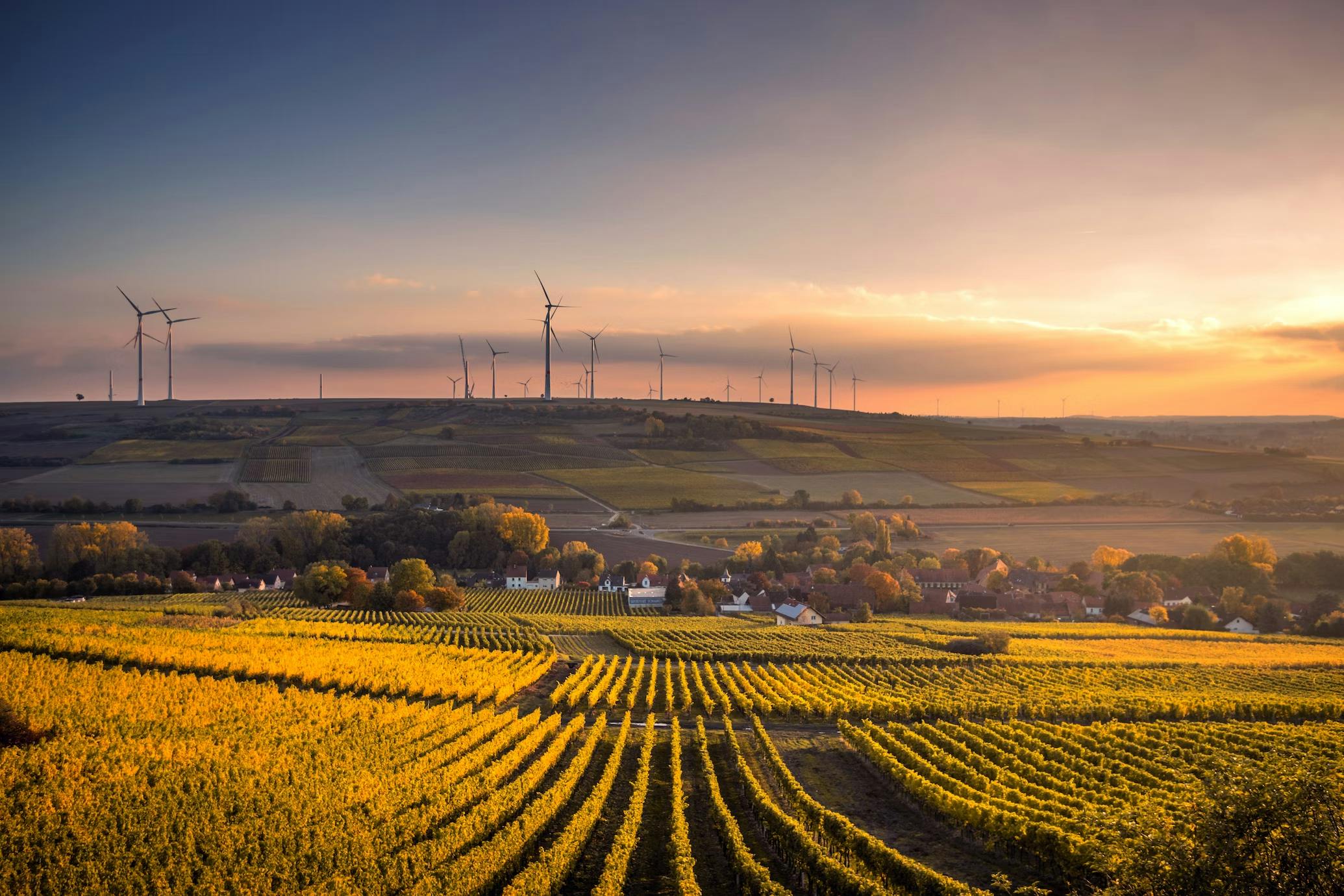Decentralised Energy: The Global Transformation of Power Generation and Distribution
3 Oct 2023

Our present energy systems and consumption habits are unsustainable.
This fact has come to define much of our cultural, political and economic discussion in recent years. Yet, the question remains, how best to approach change? Perhaps the discussion is not only about renewable energy, but decentralising our energy structures.
Technological advancements, superior profitability and demand for investments in renewable energy generation have made decentralised energy models an increasingly attractive avenue for the radicalisation of practical energy usage.
Also, the reality is that some of the most renewable energy-rich areas of the globe are not connected to the grid. Thus, challenges arise over how to take advantage of solar power in underdeveloped regions across the globe.
Building a sustainable future is less of a process to replace fossil fuels and change shopping habits. Instead, the emphasis should be on a more social and economic re-evaluation of how energy is produced, distributed and managed.
The bleak impact of global warming is increasingly clear. Not only on the environment, wildlife and weather cycles, but society’s ability to survive economic hardship and continue growth. Sustainable energy production is a global supply chain and production issue. If energy capacity is limited, it affects everything from the global food supply chain to healthcare, situations where innovative management and energy autonomy could provide a realistic solution.
This article explores the concept of decentralised energy and how it challenges the dependence on centralised sources of energy generation.
Decentralised Energy Systems vs. Traditional
Decentralised energy systems are characterised by the production of energy in specialist, localised facilities designed to service specific areas. This encompasses apartment buildings, schools, production plants or entire towns and cities.
These energy systems are not necessarily dependent on connecting to traditional energy grids and being “off-grid”. This has many benefits, especially for renewable energy-rich regions that don’t have a built-up energy connection infrastructure. Yet, governments are getting better at finding ways to connect renewable energy installations to the grid. We touch on this later on in the article.
Traditional energy systems (coal or nuclear power) generate energy at large-scale facilities which are usually far away from the consumer. These are then dependent on far-reaching infrastructure, with a connection to “the grid” necessary.
The size, scale, and resource-intense nature of traditional energy generation systems make investment and ownership of these projects less accessible to the general public. This is a key differentiation to decentralised energy systems. Renewables have lowered the barrier of entry for energy production, think about starting a solar farm.
Decentralised energy offers greater energy efficiency through an optimised use of renewable energy. It allows for energy autonomy and ownership for local communities, services and private businesses.
Benefits & Challenges of Decentralised Energy
Like any power system solution, decentralised energy offers some benefits and challenges for developers and investors. Emerging technologies and the forward-thinking nature of many communities towards decentralised energy systems are inspiring and promising to key stakeholders. However, they are pushing up against years of developed key infrastructure and investment.
Decentralised Energy Benefits
- Economic Advantages
- Political benefits
- Efficiency gains Energy generated and consumed in local communities incurs fewer transmission losses than energy transported across long distances The integration of demand-response technologies allows advanced decentralised energy systems to efficiently manage production and consumption
- Economic development and empowerment
Decentralised Energy Challenges:
Availability
- The implementation of decentralised energy systems has a prerequisite of available renewable energy sources. In small regional areas, this can be intermittent
- Similarly, integration into the current grid infrastructure can require significant technological retrofitting
- Research has shown consumers in more affluent areas are more likely to embrace transitions to decentralised energy sources than those in poorer, energy-deprived ones
- Supply chain bottlenecks of necessary components with increasing demand of critical components
Investment
- Initial setup costs and buy-in from local communities can present economic hurdles to establishing decentralised energy systems
- Government and supranational union funding that supports projects is extremely competitive
Regulation
Policy and regulation around local energy markets and the implementation of new power systems can be limiting and severely halt progress towards full integration

The Role of Technology in Advancing Decentralised Energy
Radically cheaper pricing and increasing project investment are supported by significant technological developments. This synergy is causing widespread growth of decentralised renewable energy projects.
Smart Grids
Development and innovation of smart grid technology will be vital for the evolution of decentralised energy projects.
Smart grids are electricity management systems that utilise digital tracking and sensor technology to monitor and service the supply and demand of power in real-time. This integrates vital computer communication networks to power distribution grids to facilitate two-way communication between suppliers and power off-takers, ensuring power continuity and minimising downtime/outages.
The energy transition is putting significant strain on existing, out-dated grid infrastructure. Smart grid technology will make management of existing systems easier without rendering them redundant. In addition, the technology will provide a greater level of accurate data insights in relation to power usage.
This power flow management has been improved through innovations away from DNOs (Distribution Network Operators) to DSOs (Distribution System Operators), providing the autonomy, flexibility and control required to be proactive in power flow management.
To summarise, the benefits of Smart Grids include:
- Energy supply on a ‘load demand’ basis
- Reduced emissions and fuel costs
- Streamlined integration of renewable energy sources
- Instant feedback on crucial insights including energy production and consumption
- Immediate and real-time fault diagnosis
Battery Storage Systems
Improved battery technology and storage are cited as the ‘global enabler’ of the energy transition.
Innovation in battery storage is a core renewable trend. Improved BESS will provide less developed regions with a consistent energy supply and control when energy is deployed into existing grid systems. This will be crucial in ‘energy-deprived’ locations where grid development is not a focus.
Advancements in lithium-ion battery production have been focused on minimising degradation and flammability. There is a crowded market of innovative companies and start-ups in this space. Production of these batteries will help regular consumers per se as well as widespread energy storage and management.
Alternatives such as sodium-ion models offer the potential for improved capacity. As are solid-state batteries, which eliminate the flammable liquid found within everyday batteries. Solid-state batteries are also promising given the increased energy density. This property means they are ideal for electric vehicle usage.
Clean-tech Platforms
Every clean energy initiative requires access to industry experts, development resources and routes to financing projects.
PF Nexus, a clean-tech platform, offers users visibility to over 3,000 global developers and investment institutions. The renewable energy ecosystem database is specific to the renewable energy industry and infrastructure.
Project owners are able to sell projects, SPVs or portfolios on our renewable energy project marketplace. The marketplace connects investors, developers and lenders to live deal flow from around the world.
Spotlight on Success: Case Studies from Around the World
Maximising the potential of decentralised energy is a worldwide project. Many international initiatives are first testing the impact of decentralised energy on energy-deprived areas. Afterwards, tests are for the transformation of consumption habits of population-dense ones. Of course, each area presents its own list of unique challenges and opportunities.
Compile Project: A European decentralised energy project
The Compile project ran from 2018-2022, 2018-2022, focusing on five ‘energy island’ locations: Lisbon, Krizevci, Luce, Rafina and Crevillent.
These 5 were selected due to the weak access to energy grids and different levels of local energy systems. Systems ranged from single apartment buildings to entire villages.
The project ran alongside 13 partners with 5 tools, including grid operation technology and home and vehicle energy management systems.
Objectives and Challenges:
- Provide a range of energy management and distribution tools to islands
- Educate local community leaders on renewable energy development and EnC (European Network Codes) connections
- Gather information on different technology and regulation
- Integrate this information on various organisational levels, size and composition (industry/houses/retail)
Solutions:
- Provide a range of energy management and distribution tools, educating local community leaders on renewable energy development and EnC (European Network Codes) connections
- Operate workshops, events and local discussions to provide education on decentralised energy storage and systems
- Integrate different technology, organisational levels, community sizes, composition (industry/houses/retail), and regulatory perspective
Outcomes:
- Over 5,000 people reached and were educated on the possibilities of decentralised, renewable energy sources. This included sustainable development and public procurement possibilities
- Installation of partner tools to islands gave greater energy management and procurement opportunities

The Future Outlook of Decentralised Energy
Decentralised energy sits in a unique position within the larger renewable energy conversation. It challenges control of energy and distribution, which contrasts established processes and methods.
Testing and expansion
Many local authorities across the world are changing policy towards decentralised energy systems. This is through significant investment being provided at local, national and continental scales.
This investment is key to taking decentralised energy from its present place of small-scale experimentation. Decentralised energy will provide renewable and affordable energy options that have much to gain.
The damages of global warming on socio-economic damage will be offset and fixed by decentralised energy. Ultimately, the main focus is on rural locations becoming isolated from national grids. Wider effects include changing population centres and people working from home in large apartment buildings.
Important global sustainability targets will require decentralised energy to be a counter to market volatility.
Security
Cybersecurity risks naturally emerge as new technologies are developed.
Decentralised energy systems present a significant security risk. Specifically, risks to energy access, management and distribution are prone due to their centralised nature and reliance on evolving communication and information technology. These challenges could be mitigated through the implementation of security measures, such as:
- Encryption
- Access control
- Authentication mechanisms
- Network segmentation
- Refined auditing and monitoring systems
- Regular device updates
Conclusion
Decentralised energy sources are flexible and autonomous in nature. They are necessary for increased global energy generation and don’t necessarily rely on grid connection. Thus, regions of the world where utility-scale energy generation is unthinkable, are now open.
Advancements in smart grids, battery energy storage systems and clean-tech platforms accelerate private investment. Together, these are expediting the transition from central models of energy generation to a hybrid model. Hybrid models see centralised and decentralised methods of energy generation working together.
A myriad of challenges are restricting nations from truly leveraging the full potential of decentralised energy systems. The main difficulties are financial, political and supply chain issues.
Fortunately, there is an appetite to persist with decentralised energy systems. With increased financial gain, environmental benefits and other socio-economic factors, it is easy to see why.
As decentralised energy production gains momentum, we only see net benefits to the uptake and implementation of these sources of energy generation.